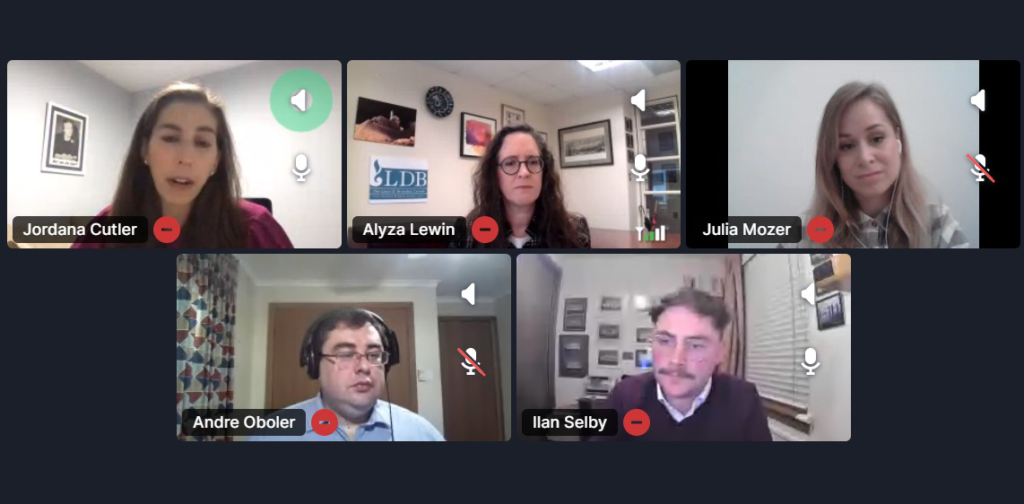The World Union of Jewish Students (WUJS) held its 2020 conference online due to COVID. We were please to be invited to participate in a panel on the topic of “Online Hate and Antisemitism” coordinated by B’nai B’rith International.
Our CEO, Dr Andre Oboler, presented on the work of the Online Hate Prevention Institute and how the fight against online antisemitism has changed over recent years. Other panelists included Jordana Cutler from Facebook, Alyza Lewin from Louis D. Brandeis Center for human rights under law, and Julia Mozer from CEJI – A Jewish Contribution to an Inclusive Europe. The panel was moderated by Ilan Selby, B’nai B’rith International’s European Affairs Officer.

The conversation focused in part on the IHRA Working Definition of Antisemitism with the civil society partners all urging Facebook to adopt the definition. It highlighted that there is more to be done on Facebook, but also reflected how far Facebook has come over the last couple of years. Policies have improved, including the banning of Holocaust denial and antisemitic stereotypes. Artificial Intelligence is taking down the vast majority of hate speech before anyone sees it.
Jordana Cutler highlighted her role not only within Israel, but in relation to consultation with the Jewish diaspora on antisemitism. She spoke of policy changes at Facebook and the usefulness of the IHRA Working Definition of Antisemitism in informing some of Facebook’s policies.
Alyza Lewin highlighted the impact antisemitism online has on university campuses. She explained the need for platforms like Facebook to recognise that Jews are a race and not just a religion, and that for many Jews the connection to Israel, that is Zionism, is a key part of their cultural heritage. Some student groups attack and exclude Jewish students who are open and proud about their connection to Israel. These groups try to brand the Jewish students a racist. Aleyza argued such tactics need to be called our for their antisemitism and this needs to also occur online where much of the communication takes place.
Dr Oboler explained that Facebook is well ahead of other companies in its response with AI, others are doing less well with automated approaches, not trying automated approaches and some fringe platforms are promoting themselves as freedom of speech platforms and make removal of antisemitic hate speech close to impossible. Highlighting the significant impact of AI on removing hate speech, Dr Oboler called for the transparency reporting to be disaggregated, that is, rather than just seeing how much hate speech was removed, let’s see specifically see how much antisemitism is caught by the AI.
Julia Mozer highlighted the role of education and the need to continue the dialogue between Facebook and the Jewish community. She highlighted the work that still needs to be done to remove antisemitism from Facebook, but also the need to educate those who are being misinformed.
Thank you to WUJS, B’nai B’rith International and the audience for an excellent panel.
